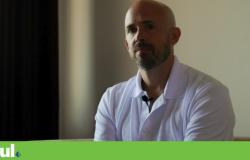The Academic Crisis of 1962 was the first major conflict that inaugurated a decade of student protest.” As the events in the university city of Lisbon are widely known and remembered, this article focuses on the contributions of the Coimbra Academy in supporting its leadership of student movements on a national scale.
To understand this crisis, which is not just a one-off event but rather a succession of catalytic events, it is necessary to go back a few years to give the reader an overview of the context of university education in illo tempore.
In 1957, the promulgation of Decree 40,900 established a regime of Administrative Commissions appointed directly by the State in the country’s various Academic Associations, undermining the principles of self-management and independence of Academic Associations, thus triggering a feeling of national protest among the various student bodies. .
In Coimbra, the struggle took shape through the various demands of the Academic Association and the practice began to publicly adopt components of political opposition to the Estado Novo.
In 1961, on the roof of the Faculty of Arts, posters were held up like “Tó (Salazar) has cancer. Poor cancer” and “Angola é Nossa” taken by a black freshman, provoking a police response that ended with a student arrested.
As a way of contesting the repression, on November 25th of that year, Coimbra hosted the celebration of the Storming of the Bastille on a national scale. The Veterans Council launches a ‘decretus’ declaring Academic Mourning and depicts the then President of the Republic Américo Tomás “out to pasture”. The “decretus2 is considered political and the Dux Veteranorum, Joaquim Cantante Garcia, and 15 other Veterans are also arrested.
Gathered in the Magna Assembly, it condemns the arrests and asks the General Directorate to intercede with the PIDE and the Minister of the Interior, to which the response is that there will be an intensification of the harsh policy towards students. Rector Braga da Cruz adopts a public stance against the Students, considering the Magna Assembly “The People’s Court” and the students a football fan base.
In February 1962, a meeting of leaders from the various Academies in the country took place in Lisbon, where the decision was made for the 1st National Student Meeting, in Coimbra. An order from the Ministry of Education prohibits the meeting and the Rector publicly distances himself from the event, advising the AAC to break off collaboration with the other Associations.
The following month, the State prohibits the celebration of Student Day the day before, which generates a national reaction from several Associations. On March 24th, hundreds of students from Coimbra headed by bus and train to Lisbon but were intercepted and around 40 were forced to change their route to Caxias. Informed of the students’ arrests, the Rector comments: “Are they arrested? There they will have a cell and a bed to sleep in.” These declarations culminate the following day with an open fight in the Paço das Escolas, between hundreds of students, police and archers.
The Magna Assembly withdraws confidence in the Rector, and in response the Ministry dismisses the AAC Management, appointing an Administrative Commission instantly ‘unnominated’ by the students.
The crisis in Coimbra continues until the end of the year with the General Directorate of the Academic Association being fired twice more, the headquarters of the Academic Association barricaded, invaded, re-barricaded and closed again until the end of the academic year . In one of these confrontations, students stormed (once again) the University Tower, causing the ringing bells to echo throughout the city. In an unprecedented historic gesture, the Rector calls on the Riot Police to invade the facilities themselves, violating the University’s Statutes and autonomy.
In solidarity with colleagues and with the current academic mourning, the then Grelados Assembly (currently the Queima das Fitas Organizing Committee) decided, for the first time, to cancel Queima das Fitas, to the great detriment of the city’s traders. During the confrontations, the students adopt what is considered the first song of protest, Trova do Vento que passes.
The crisis resulted in around two hundred students being arrested, forty being removed from the University and the Rector being successively sent to pasture alongside Américo Tomás.
In Lisbon, Rector Marcelo Caetano resigned, taking 6 years before returning to the scene, a patriotic contribution from a poorly placed resting chair.
The Academic Crisis of ’62 inaugurated the wave of student struggles that would continue throughout the 1960s. Sixty years later, when the Rule of Law overcomes the State of Oppression, Student Day remains in Portugal as the day of struggle for all Higher Education students and an inspiring legacy for all generations to come.






